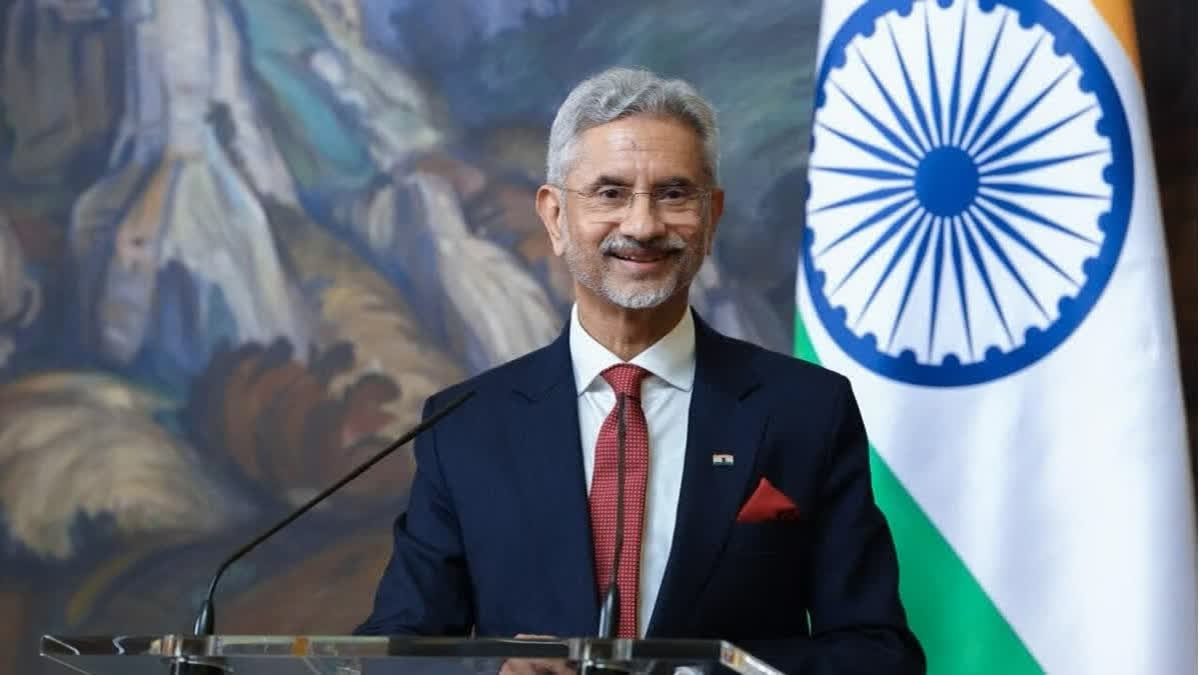New Delhi: That India is keen to keep its equations with neighbours intact even after changes in dispensation is evident from External Affairs Minister S Jaishankar's upcoming day-long visit to Sri Lanka.
Jaishankar will be the first foreign minister from any country to visit Sri Lanka after Anura Kumara Dissanyake of the National People's Power (NPP) alliance was elected as the new President of the country last month.
"In keeping with India's Neighbourhood First Policy and SAGAR (Security and Growth for All in the Region) outlook, the visit underlines the shared commitment of the two countries to further deepen the longstanding partnership for mutual benefit," the Ministry of External Affairs said in a press release on Thursday while announcing the visit.
Why Jaishankar’s visit on Friday assumes significance is because New Delhi is now faced with the prospect of dealing with a completely new entity that has assumed power in the Indian Ocean island nation.
The India-Sri Lanka relationship has traditionally been marked by bonhomie and a legacy of cultural, religious and linguistic interaction. Trade and investment have grown and there is cooperation in the fields of development, education, culture and defence.
Sri Lanka is one of India's major development partners and this partnership has been an important pillar of bilateral ties between the two countries over the years. With grants alone amounting to around $570 million, the overall commitment by the Government of India is to the tune of more than $3.5 billion.
Demand-driven and people-centric nature of India’s development partnership with Sri Lanka has been the cornerstone of this relationship. Grant projects cut across sectors such as education, health, livelihood, housing, and industrial development.
When Sri Lanka was faced with an unprecedented economic crisis in 2022, India provided around $4 billion worth of aid. India also played a crucial role in collaborating with the International Monetary Fund (IMF) and creditors to help Sri Lanka restructure its debt.
Located close to India's southern coast, Sri Lanka is of huge geostrategic importance for India. India has been expressing concerns about China's growing economic and strategic influence on Sri Lanka, including Chinese investments in infrastructure projects and the development of the Hambantota Port. India has been trying to keep China away from a region New Delhi sees as to be under its sphere of influence.
Jaishankar's visit to Sri Lanka should be also seen from the context of regime instability in India's immediate neighbours that has not necessarily been of New Delhi's interests.
In Nepal, there have been frequent changes of government since the end of monarchy in 2008 with no government able to last a full term. In Myanmar, a civil war rages on after a military coup in 2021 that saw the ouster of the democratically-elected government of Nobel laureate Aung San Suu Kyi. The Maldives has been swinging between pro-India and anti-India governments.
Bangladesh became the latest tipping point when in August this year, Prime Minister Sheikh Hasina, seen as a close ally of India, was ousted after a mass uprising. A neighbour with whom New Delhi enjoyed the closest of ties till the other day is now seeing the prospects of a potentially anti-India regime coming to power. Amidst all these, China is continuously pushing its agenda of increasing its influence among South Asian nations. It is in the light of all this that Jaishankar’s upcoming visit to Sri Lanka assumes significance.
To New Delhi's credit though, it had seen the rising star of Dissanayake in the Sri Lankan political landscape well in advance. Dissanayake is the leader of the Janatha Vimukthi Peramuna (JVP), a leftist political party that is the main component of the NPP alliance.
The alliance also comprises several other Left-leaning political parties, trade unions, civil society organisations, and individuals who share a vision for a more egalitarian Sri Lanka. The JVP was formerly a revolutionary movement and was involved in two armed uprisings against the government of Sri Lanka - once in 1971 and another in 1987–1989 The motive for both the uprisings was to establish a socialist state.
In its early years, the JVP viewed India’s regional dominance with suspicion, particularly in the context of the Sri Lankan civil war. India’s support for Tamil separatist groups and its role in the formation of the Indian Peacekeeping Force (IPKF) in Sri Lanka (1987–1990) exacerbated these fears. The JVP strongly opposed the 1987 India-Lanka Accord, viewing it as a violation of Sri Lanka's sovereignty and an instance of Indian imperialism.
As a Marxist party, the JVP criticised India’s alignment with capitalist global forces. It viewed the Indian state as serving the interests of local elites and international capitalism, rather than representing the working class. This ideological stance contributed to their suspicion of India’s regional policies.
